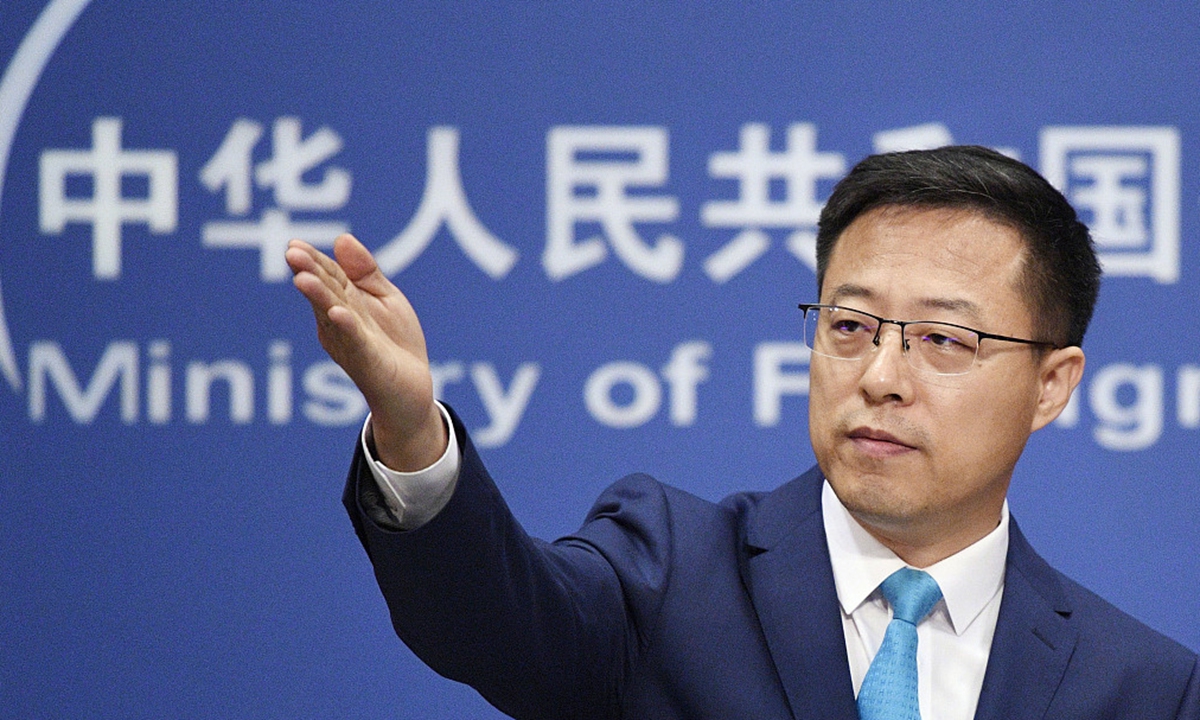
Zhao Lijian Photo: VCG
China refuted Thursday US' denial of its Starlink satellites having endangered China's crewed space station by claiming their activities did not meet the threshold of established emergency collision criteria, saying US' claim is an act of "shirking responsibility."
Zhao Lijian, a Chinese Foreign Ministry spokesperson, made the remarks at a routine press conference on Thursday.
The US has reportedly refuted China's complaint to the US that SpaceX's Starlink satellites endangered its crewed space station in an official note verbale to the United Nation (UN) Office of Outer Space Affairs.
Beijing issued their note verbale in December 2021, to the same UN office.
According to the note, during China's normal and legitimate space missions in 2021,Starlink satellites launched by SpaceX had two close encounters with the China Space Station separately on July 1 and October 21, such that it endangered the safety of Chinese taikonauts and forced China's Tiangong Space Station to "implement preventive collision avoidance control."
The US claimed in its note verbale that the Starlink satellites' activities involved in the incidents "did not meet the threshold of established emergency collision criteria, emergency notifications were not warranted in either case."
"China's notification to the United Nations over Starlink satellites dangerously approaching China Space Station that posed a threat to the safety of Chinese taikonauts in orbit is a fulfillment of its international obligations under Article 5 of the Outer Space Treaty," Zhao said on Thursday.
"In those related collision avoidance incidents, the US Starlink satellites were in a continuous orbital maneuvering state, and their maneuvering strategy and intention were unknown. The Chinese taikonauts were facing realistic and urgent security threats, and China has to maneuver away in order to avoid collision," Zhao added.
The US said in the note "it's unaware of any contact or attempted contact by China with the US Space Command, the operators of Starlink-1095 and Starlink-2305 or any other US entity to share information or concerns about the stated incidents prior to the note verbale from China to the Secretary General."
However, according to Zhao, the fact is that "After the collision avoidance incidents, China made multiple attempts to contact the US by email, but received no reply."
The US claim that those satellite activities did not meet the threshold of established emergency collision criteria is not the responsible attitude of a major aerospace power, not to mention that the US has no right to unilaterally set a lower limit for emergency collision standards, Zhao pointed out.
Zhao cited Article 9 of the outer space treaty, saying that State Parties to the Treaty shall be guided by the principle of cooperation and mutual assistance and shall conduct all their activities in outer space with due regard to the corresponding interests of all other State Parties to the Treaty.
China has registered relevant information of the China Space Station with the UN and released its orbit information online. To safeguard the safety of Chinese taikonauts and the China Space Station, China is willing to establish effective exchange mechanism with the US and hopes that the US will take concrete measures to prevent such incidents from happening again, Zhao said.
China also hopes all countries can jointly respect the international system of the outer space based on international law, and work together to safeguard the safety of astronauts in orbit and the safe and stable operation of space facilities, Zhao concluded.
Global Times




